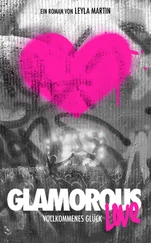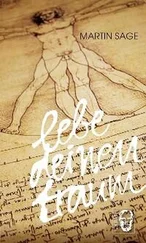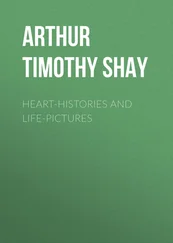Harriet Martineau - Eastern Life
Здесь есть возможность читать онлайн «Harriet Martineau - Eastern Life» — ознакомительный отрывок электронной книги совершенно бесплатно, а после прочтения отрывка купить полную версию. В некоторых случаях можно слушать аудио, скачать через торрент в формате fb2 и присутствует краткое содержание. Жанр: unrecognised, на английском языке. Описание произведения, (предисловие) а так же отзывы посетителей доступны на портале библиотеки ЛибКат.
- Название:Eastern Life
- Автор:
- Жанр:
- Год:неизвестен
- ISBN:нет данных
- Рейтинг книги:5 / 5. Голосов: 1
-
Избранное:Добавить в избранное
- Отзывы:
-
Ваша оценка:
- 100
- 1
- 2
- 3
- 4
- 5
Eastern Life: краткое содержание, описание и аннотация
Предлагаем к чтению аннотацию, описание, краткое содержание или предисловие (зависит от того, что написал сам автор книги «Eastern Life»). Если вы не нашли необходимую информацию о книге — напишите в комментариях, мы постараемся отыскать её.
Eastern Life — читать онлайн ознакомительный отрывок
Ниже представлен текст книги, разбитый по страницам. Система сохранения места последней прочитанной страницы, позволяет с удобством читать онлайн бесплатно книгу «Eastern Life», без необходимости каждый раз заново искать на чём Вы остановились. Поставьте закладку, и сможете в любой момент перейти на страницу, на которой закончили чтение.
Интервал:
Закладка:
II. From Alexandria to Cairo – First Sight of the Pyramids – Preparations for Nile Voyage
On the 25th of November, we left Alexandria, rising by candlelight at six, and seeing the glorious morning break by the time we were dressed. Our days were now nearly eleven hours long; at the shortest, they would be ten. We were not struck, as we expected to be, by the shortness of the twilight. Instead of the immediate settling down of darkness, after the disappearance of the sun, I found that I could read small print for half an hour after sunset, in our most southerly latitude.
I do not remember to have read of one great atmospheric beauty of Egypt – the after-glow, as we used to call it. I watched this nightly for ten weeks on the Nile, and often afterwards in the Desert, and was continually more impressed with the peculiarity, as well as the beauty, of this appearance. That the sunset in Egypt is gorgeous, everybody knows; but I, for one, was not aware that there is a renewal of beauty some time after the SUB has departed and left all grey. This discharge of colour is here much what it is among the Alps, where the flame-coloured peaks become grey and ghastly as the last sunbeam leaves them. But here everything begins to brighten again in twenty minutes; – the hills are again purple or golden, – the sands orange, – the palms verdant, – the moonlight on the water, a pale green ripple on a lilac surface: and this after-glow continues for ten minutes, when it slowly fades away.
Mr. E. had brought with him his noble dog Pierre, which created a far greater sensation in Alexandria than we did. European men and women are seen every day there; but so large a dog had probably never been known in that region. Women and children, and even men, fled into their houses, or behind walls, at Pierre's approach, every morning during our walks. Pierre was not safe. Between the jealousy of the native dogs, the fears of the Arabs, and the perils of the desert, Pierre had little chance of secure travelling; and so his master sent him home. We left Alexandria without Pierre: but we had a much better servant in the dragoman engaged there by Mr. E., – Alee Mustafa, – who travelled with us till we reached Alexandria again the next May, and did his duty by us admirably. He is a native Egyptian, young and strong, able and experienced in his work, and faithful and correct in his money transactions. We met with other travelling parties as content with their dragomen as we were with ours: and I at present remember only one which was cursed with a bad attendant. When we consider what qualifications are requisite in the office, we must see that the dragomen must be a superior class of people. It was one of my amusements to study all whom I met; and when I saw what their knowledge of languages was, – what their efficiency in daily business, their zeal in travelling, their familiarity with the objects en route wherever we went, their temper in times of hurry and disaster, their power of command co-existing with their diligence and kindliness in service, – I felt that some of us might look very small in our vocations in comparison with our dragomen.
We proceeded in an omnibus to the Mahmoudieh Canal, where we went on board the boat which was to carry us to Atfeh, at the junction of the canal with the Nile. The boat was taken in tow by a smaller steamer, named by a wag »the little Asthmatic.« We heard a good deal of her ailments, – the cracks in her boiler, and so forth; so that we hardly expected to reach Atfeh in due course. The villas in the neighbourhood of Alexandria are pleasantly surrounded with gardens, and fenced by hedges or palings hung with the most luxuriant creepers; but the houses are of glaring white, and look dreadfully hot. The villages on the banks are wretched-looking beyond description: the mud huts square, or in bee-hive form; so low and clustered and earthy, that they suggest the idea of settlements of ants or beavers, rather than of human beings. Yet we were every few minutes meeting boats coming down from the country with produce, – various kinds of grain and roots, in heavy cargoes. Some of these boats were plastered with mud, like the houses; and so thickly that grass grew abundantly on their sides. On the heaps of grain were squatted muffled women and naked children: naked men towed the boats, – now on the bank, and now wading in the mud; and muffled women came out of the villages to stare. To-day there seemed to be no medium between wrapping up and nakedness; but it became common, up the country, to see women and girls covering their faces with great anxiety, while they had scarcely any clothing elsewhere.
We saw the other extreme of dress in a passenger on board our boat, – the chief eunuch of the royal hareem at Cairo. Neither his beautiful dress, – of the finest cloth, amply embroidered, – nor his attendants and appliances, could impress me with the slightest sense of dignity in the case of this extraordinary-looking being. He was quiet in his manners, conversed with apparent ease, said his prayers and made his prostrations duly on the top of the kitchen, telling his beads with his long and skinny fingers; but his emaciation and ugliness baffled all the usual associations with the outward signs of rank. I could not think of him as an official of high station.
This is the canal which, as everybody knows, cost the lives of above twenty thousand people, from the Pasha's hurry to have it finished, and the want of due preparation for such a work in such a country. Without tools and sufficient food, the poor creatures brought here by compulsion to work died off rapidly under fatigue and famine. Before the improvements of the Pasha are vaunted in European periodicals as putting European enterprises to shame, it might be as well to ascertain their cost, – in other things as well as money; – the taxes of pain and death, as well as of piastres, which are levied to pay for the Pasha's public works. There must be some ground for the horror which impels a whole population to such practices as are every day seen in Egypt to keep out of the reach and the ken of government: – practices such as putting out an eye, pulling out the teeth necessary for biting cartridges, and cutting off a forefinger, to incapacitate men for army service. The fear of every other sort of conscription, besides that for the supply of the army, is no less urgent; and it is a common practice for parents to incapacitate their children for reading and writing by putting out an eye, and cutting off the forefinger of the right hand. Any misfortune is to be encountered rather than that of entering the Pasha's army, the Pasha's manufactories, the Pasha's schools. This can hardly be all baseless folly on the part of the people. If questioned, they could at least point to the twenty-three thousand deaths which took place in six months in the making of the Mahmoudieh Canal.
The Pasha is proud of this canal, as men usually are of achievements for which they have paid extravagantly. And he still brings his despotic will to bear upon it, in defiance of nature and circumstance. I was told to-day of his transmission of Lord Hardinge by it, when Lord Hardinge and everybody else believed the canal to be impassable from want of water. This want of water was duly represented to the Pasha: but as he still declared that Lord Hardinge should go by that way and no meaner one, Lord Hardinge had only to wait and see how it would be managed. He went on board the steamer at Alexandria, and proceeded some way, when a bar of dry ground appeared extending across the canal. But this little inconvenience was to be no impediment. A thousand soldiers appeared on the banks, who waded to the steamer, and fairly shouldered it, with all its passengers, and carried it over the bar. The same thing happened at the next dry place, and the next; and thus the Pasha is able to say that he forwarded Lord Hardinge by his own steamer on his own great canal.
Читать дальшеИнтервал:
Закладка:
Похожие книги на «Eastern Life»
Представляем Вашему вниманию похожие книги на «Eastern Life» списком для выбора. Мы отобрали схожую по названию и смыслу литературу в надежде предоставить читателям больше вариантов отыскать новые, интересные, ещё непрочитанные произведения.
Обсуждение, отзывы о книге «Eastern Life» и просто собственные мнения читателей. Оставьте ваши комментарии, напишите, что Вы думаете о произведении, его смысле или главных героях. Укажите что конкретно понравилось, а что нет, и почему Вы так считаете.












